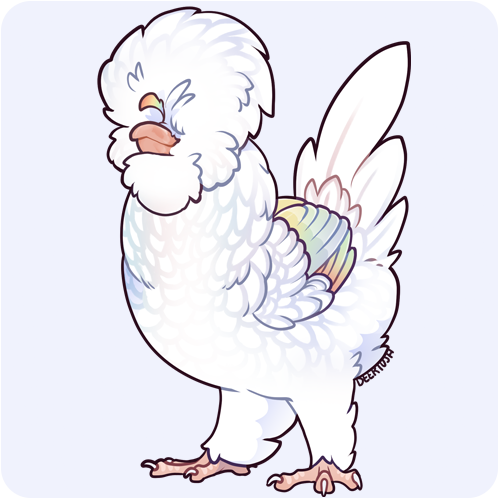
Chimebird
The bell that walks on two legs.
Gentle and grounded, chimebirds are small, chicken-sized birds best known for their soft bell-like calls that echo through the morning fog and evening light. These sounds are more than beautiful. They are essential. Each chime is distinct and a vocal fingerprint that allows chimebird families to locate one another across tall grasses and dense brush.
Naturally found across much of the Atalavian mainland, chimebirds live in tight-knit family units consisting of a breeding pair and their offspring. Rarely straying far from one another, they move like a tide - small ripples of fluff and feathers chittering through the underbrush. These family groups can range from anywhere from 3 adults with offspring to 10 adults with combined offspring. Family photos can get a bit challenging.
Coloration depends on a range of influences: age, climate, and hierarchy within their familial group. Some older birds grow paler with time, while dominant breeders display more saturated tones. Isolated populations in the Salmon Coast and Cold North exhibit localized traits like shorter plumage or broader beaks. Notably, no subspecies have been observed hybridizing even when territory overlaps.
While they are often tamed by faunids, their quiet independence and strong group bonds keep them half-wild in spirit.
If you're lucky enough to wake up to a chimebird chorus, you’re exactly where you need to be.

Chimebirds are among the most deeply bonded companions one can share their life with. Naturally inclined to form strong familial ties, they eagerly extend that instinct to their faunid caretakers and often consider them part of their flock. They are happiest when they can roost close, sing with, and follow their bonded faun wherever they go. Sometimes leading to the humorous sight of a faun trailed by a single file of chimes like a feathered parade.
It’s strongly encouraged to house more than one if the faun is not present for long periods, as lone chimebirds can become sorrowful or anxious. They will still sing, but it’s a sad sound.
Because they can fly (however briefly or clumsily), it’s considered unethical to clip their wings. Chimes should always be able to escape danger, even if their first instinct is to run to you instead.








